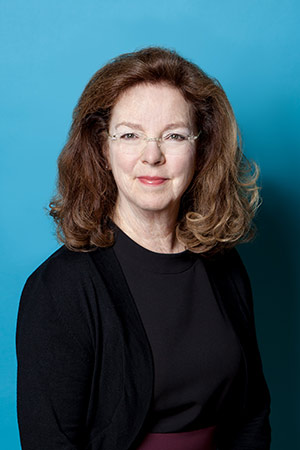About Us

Explore the team that made all of this possible
Compositive is a national movement focused on “whole education” for children and youth in grades K-12.
Who are we?
Compositive is a national movement focused on “whole education” for children and youth in grades K-12. Research shows that instilling in children the capacities to reflect and learn, recognize and act, care and connect, and engage and serve empowers them to become the best versions of themselves and have a positive impact on the world around them. This is a paradigm shift from the traditional education model, which focuses solely on academic achievement, toward a new model that encourages parents/caregivers and educators to integrate the four domains including cognition, character, health & well-being, and community engagement, into lessons taught at home, at school and in the community.
 Betsy Callaway Considine is a leader in education reform. She is committed to serving the Colorado community and has served on a variety of boards, including the Catholic Foundation, Children’s Hospital Colorado, Denver Botanic Gardens, Regis Jesuit High School, Ricks Center for Gifted Children at the University of Denver, Seeds of Hope Foundation, and the Women’s Foundation of Colorado. She earned a bachelor’s degree from Duke University and a master’s in business administration from Harvard.
Betsy Callaway Considine is a leader in education reform. She is committed to serving the Colorado community and has served on a variety of boards, including the Catholic Foundation, Children’s Hospital Colorado, Denver Botanic Gardens, Regis Jesuit High School, Ricks Center for Gifted Children at the University of Denver, Seeds of Hope Foundation, and the Women’s Foundation of Colorado. She earned a bachelor’s degree from Duke University and a master’s in business administration from Harvard.
Betsy is the founder of Compositive, a national movement focused on “whole child” education for grades K-12. This new education model is based on peer reviewed research, as well as the principle of increasing children’s capacities to reflect and learn, recognize and act, care and connect, and engage and serve. This integrated approach empowers children to lead lives of personal excellence. In conjunction with her work on Compositive, Betsy is launching a unique Pre-K – 5th grade school in 2019. It features a student-driven, inquiry-based educational program. The Compositive school focuses on helping children develop critical thinking skills, flexibility, resilience, internal motivation and a commitment to service.
In addition to education innovation, Betsy’s experience covers the worlds of politics, religion, community service, women’s issues, ranching and family. She worked on multiple presidential campaigns, did a stint in the White House and ran her own construction company.
Betsy was born and raised in rural Georgia, and her family’s roots go back seven generations in Harris County. She is married to entrepreneur and former Colorado State Senator Terry Considine. The Considines, who have lived in Colorado for 38 years, enjoy spending time at their ranch in Western Colorado with their three adult children and their families.
 Amy Slothower is serving as the Executive Director of Compositive and oversees all planning and operations for the development of Compositive Primary as well as efforts to extend the Compositive reach. She is a management consultant whose focus is on nonprofit strategic planning. Her past clients include Children’s Hospital Colorado, the Colorado Health Foundation, the Colorado Office of Early Childhood, the Colorado Charter School Institute and numerous charter and independent schools. She was previously the founding executive director of Get Smart Schools, a charter school incubator and leadership development organization. Slothower was also the founder and board president of Denver Venture School, a Denver Public Schools charter high school with an entrepreneurship focus that opened in August 2008. In addition, she co-founded the Denver School of Science and Technology where she spent three years as chief financial officer prior to its 2004 opening. She also served as the vice president of finance and operations for the Colorado Children’s Campaign, an advocacy organization working to improve the lives of all of Colorado’s 1.1 million kids.
Amy Slothower is serving as the Executive Director of Compositive and oversees all planning and operations for the development of Compositive Primary as well as efforts to extend the Compositive reach. She is a management consultant whose focus is on nonprofit strategic planning. Her past clients include Children’s Hospital Colorado, the Colorado Health Foundation, the Colorado Office of Early Childhood, the Colorado Charter School Institute and numerous charter and independent schools. She was previously the founding executive director of Get Smart Schools, a charter school incubator and leadership development organization. Slothower was also the founder and board president of Denver Venture School, a Denver Public Schools charter high school with an entrepreneurship focus that opened in August 2008. In addition, she co-founded the Denver School of Science and Technology where she spent three years as chief financial officer prior to its 2004 opening. She also served as the vice president of finance and operations for the Colorado Children’s Campaign, an advocacy organization working to improve the lives of all of Colorado’s 1.1 million kids.
Slothower received bachelor’s degrees in history and literature from Harvard University. She earned an MBA with an emphasis in entrepreneurship from the J.L. Kellogg Graduate School of Management at Northwestern University. She is a member of the Garden Club of Denver and is an active volunteer with the Denver Botanic Gardens. Past Board of Directors memberships include History Colorado, where she served as vice chair, the Humanities Institute at the University of Denver, and the Webb-Waring Institute. She is the mother of two young children and her personal interests include traveling, hiking, and skiing.
 Norma Hafenstein, PhD is the Daniel L. Ritchie Endowed Chair in Gifted Education, Teaching and Learning Sciences Department, Morgridge College of Education, University of Denver. Dr. Hafenstein is lead faculty for gifted education, Full Clinical Professor in the Teaching and Learning Sciences department. She advises masters and doctoral degree students in education of the gifted and teaches graduate courses including Creativity: Theory and Practice, Psychological Aspects of the Gifted, Curriculum for the Gifted, Program Development, Leadership and Communication in Gifted Education, Instructional Strategies for the Gifted, Twice Exceptional Learners, and Research as Problem Identification, Intervention, and Application.
Norma Hafenstein, PhD is the Daniel L. Ritchie Endowed Chair in Gifted Education, Teaching and Learning Sciences Department, Morgridge College of Education, University of Denver. Dr. Hafenstein is lead faculty for gifted education, Full Clinical Professor in the Teaching and Learning Sciences department. She advises masters and doctoral degree students in education of the gifted and teaches graduate courses including Creativity: Theory and Practice, Psychological Aspects of the Gifted, Curriculum for the Gifted, Program Development, Leadership and Communication in Gifted Education, Instructional Strategies for the Gifted, Twice Exceptional Learners, and Research as Problem Identification, Intervention, and Application.
Dr. Hafenstein serves as a member of the Colorado Department of Education’s Gifted and Talented Endorsement Standards Committee. She consults with schools across the country providing teacher training, curriculum design, and program development. Dr. Hafenstein established the Institute for the Development of Gifted Education in 1998 through support from the Lynde and Harry Bradley Foundation. In 1984, Dr. Hafenstein founded the Ricks Center for Gifted Children at the University of Denver and was director for 29 years. Dr. Hafenstein was the recipient of the Distinguished Alumni Award from Emporia State University in 2012. She received the Lifetime Achievement Award from the Colorado Association for Gifted and Talented in 2006 and in 2005, was presented with the Founder’s Day Distinguished Service to the University of Denver Award.
Currently, Dr. Hafenstein is co-principal investigator for the Right4Rural Project, a Javits federally-funded initiative to identify and serve giftedness in rural Colorado communities. Her research interests include identification of giftedness in underrepresented populations, information-processing styles, social and emotional development, program effectiveness, and adult and generational giftedness.

